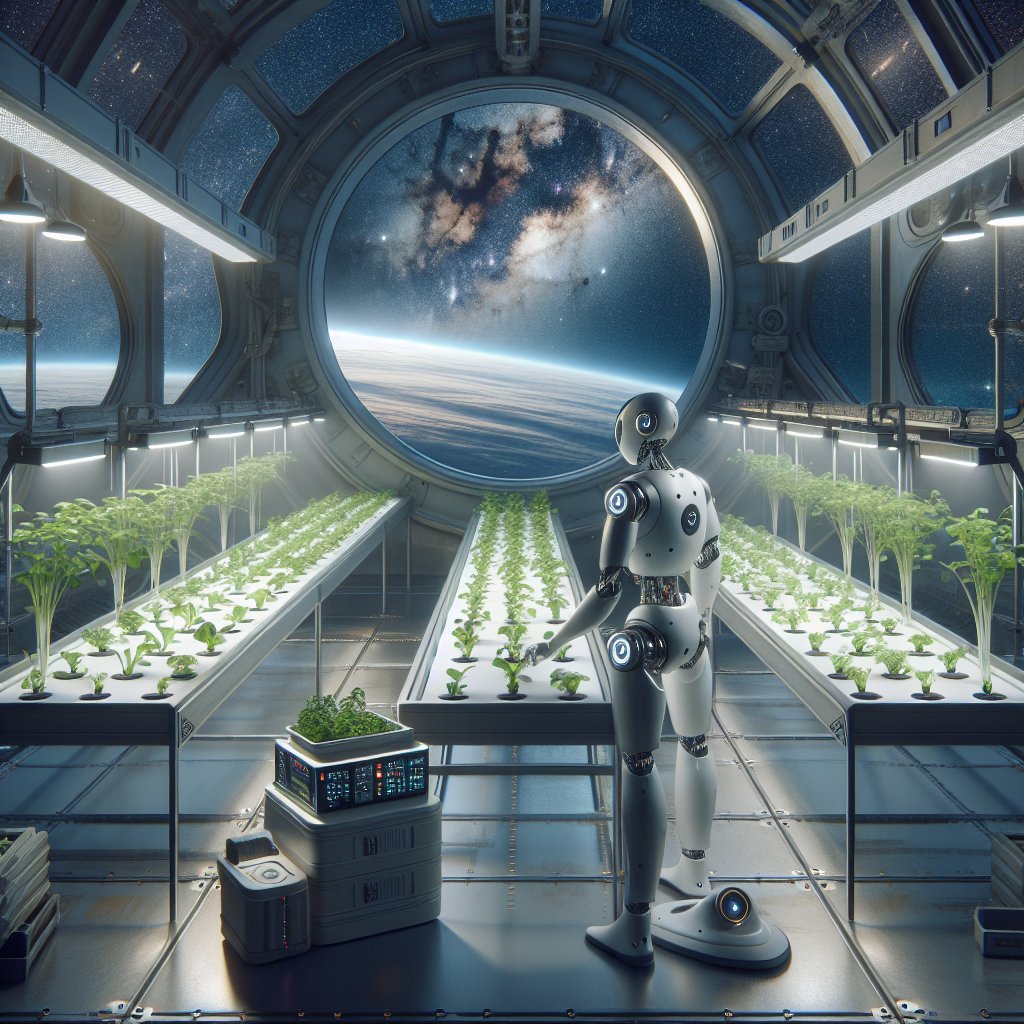The role of artificial intelligence in space farming is becoming increasingly significant as humanity looks to expand its presence beyond Earth. With the challenges of growing food in extraterrestrial environments, AI technologies are being developed to optimize agricultural practices in space. This article explores the intersection of agriculture and space exploration, focusing on how artificial intelligence can revolutionize farming in space and ensure food security for future missions to the Moon, Mars, and beyond.
Understanding Space Farming
Space farming refers to the cultivation of crops in extraterrestrial environments, such as the Moon or Mars. As space agencies and private companies plan long-duration missions, the need for sustainable food sources becomes paramount. Traditional farming methods are not feasible in these harsh environments due to factors like low gravity, extreme temperatures, and limited resources. Therefore, innovative solutions are required to ensure that astronauts have access to fresh food during their missions.
One of the primary challenges of space farming is the lack of natural sunlight. In space, plants must rely on artificial light sources, which can be energy-intensive and costly. Additionally, the soil composition on other celestial bodies is vastly different from that on Earth, often lacking essential nutrients. To address these challenges, researchers are exploring hydroponics and aeroponics, which allow plants to grow without soil, using nutrient-rich water or mist instead.
Artificial intelligence plays a crucial role in optimizing these farming techniques. By analyzing data from sensors and cameras, AI can monitor plant health, growth rates, and environmental conditions in real-time. This information allows for precise adjustments to be made, ensuring that crops receive the optimal amount of water, light, and nutrients. As a result, AI not only enhances crop yields but also reduces resource consumption, making space farming more sustainable.
The Role of Artificial Intelligence in Space Farming
Artificial intelligence encompasses a range of technologies, including machine learning, computer vision, and robotics. Each of these technologies can contribute to the success of space farming in unique ways.
1. Machine Learning for Crop Management
Machine learning algorithms can analyze vast amounts of data collected from sensors placed in space farms. These algorithms can identify patterns and correlations that humans might overlook, leading to more informed decision-making. For instance, machine learning can predict the optimal time for planting and harvesting based on environmental conditions, ensuring that crops are grown efficiently.
Moreover, machine learning can help in pest and disease detection. By training models on images of healthy and unhealthy plants, AI can quickly identify issues and recommend interventions. This proactive approach minimizes crop loss and maximizes food production, which is critical for long-term space missions.
2. Computer Vision for Monitoring Plant Health
Computer vision technology allows AI systems to analyze images of plants and assess their health. By using cameras equipped with advanced imaging techniques, AI can detect subtle changes in color, texture, and growth patterns. This capability is essential for early detection of stress factors, such as nutrient deficiencies or water shortages.
In a space farming context, computer vision can be integrated with automated systems that adjust environmental conditions based on the health of the plants. For example, if a plant shows signs of wilting, the system can automatically increase water supply or adjust light intensity to alleviate stress. This level of automation is vital for maintaining optimal growing conditions in the challenging environment of space.
3. Robotics for Automated Farming
Robotics is another area where AI can significantly impact space farming. Autonomous robots can perform various tasks, such as planting seeds, watering plants, and harvesting crops. These robots can operate in environments that are hazardous for humans, reducing the risk to astronauts while ensuring that farming operations continue smoothly.
Additionally, robots equipped with AI can learn from their experiences and improve their efficiency over time. For instance, a robot that has harvested crops in one cycle can analyze its performance and adjust its techniques for the next cycle, leading to continuous improvement in farming practices.
Challenges and Future Prospects
Despite the promising potential of AI in space farming, several challenges remain. One of the primary concerns is the reliability of AI systems in the harsh conditions of space. Factors such as radiation, temperature fluctuations, and limited communication with Earth can affect the performance of AI technologies. Therefore, robust systems must be developed to ensure that they can operate effectively in these environments.
Another challenge is the need for interdisciplinary collaboration. Successful space farming requires expertise in agriculture, engineering, computer science, and space exploration. Collaborative efforts among researchers, engineers, and astronauts will be essential to develop and implement effective AI solutions for space farming.
Looking ahead, the future of space farming with AI is promising. As technology continues to advance, we can expect to see more sophisticated AI systems capable of managing complex agricultural tasks in space. These innovations will not only support human missions to Mars and beyond but may also provide insights into sustainable farming practices on Earth.
Conclusion
The integration of artificial intelligence in space farming represents a significant step forward in our quest to explore and inhabit other planets. By leveraging AI technologies, we can optimize crop production, ensure food security, and ultimately support long-term human presence in space. As we continue to push the boundaries of exploration, the role of AI in agriculture will be crucial in overcoming the challenges of growing food in extraterrestrial environments. The future of space farming is bright, and with continued research and innovation, we may soon witness the successful cultivation of crops beyond our home planet.




